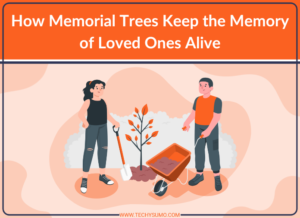Life moves fast, and in our pursuit of success, we often forget to cherish what we already have. The phrase “Love what you have before life teaches you to love” isn’t just a feel-good quote—it’s a wake-up call. If you don’t stop to appreciate your present blessings, life may remind you, sometimes harshly, of what you’ve taken for granted.
Let’s break down the ‘Tymoff’ philosophy and understand why contentment in the present moment is the key to true happiness.
Table of Contents
What is the ‘Tymoff’ Philosophy?
The ‘Tymoff’ philosophy is all about pausing in the race for more and appreciating what’s already within reach. The term “Tymoff”—derived from “Time Off”—emphasizes stepping back from the constant chase for external success and finding fulfillment in the now.
In a world that constantly pushes us to achieve the next big thing, this philosophy urges us to stop, breathe, and acknowledge the value of our current experiences. True happiness isn’t in the ‘next milestone’—it’s right here, right now.
Understanding the Meaning of ‘Love What You Have Before Life Teaches You to Love’
We often hear people say, “You don’t know what you have until it’s gone.” That’s precisely the message behind this quote. It’s about cherishing what you have today before circumstances force you to recognize its worth.
Also Read
Why Do We Take Things for Granted?
- We assume our loved ones, opportunities, and comforts will always be there.
- We are conditioned to always strive for more, making us blind to what we already possess.
- We measure happiness by achievements rather than appreciating life’s simple joys.
But here’s the truth: everything in life is temporary. Your job, relationships, health, and even the small daily comforts won’t last forever. The secret to happiness? Acknowledging and treasuring them before they slip away.
The Downside of the ‘More’ Mentality
Society glorifies ambition, but constantly wanting more can be a double-edged sword.
The Never-Ending Chase
- The hedonic treadmill explains how humans quickly return to a baseline level of happiness after acquiring something new. That means no matter how much we achieve, we always want more.
- This endless chase creates stress, dissatisfaction, and a feeling that nothing is ever “enough.”
How It Affects Our Mental Health
- The constant need for more success, wealth, or possessions leads to anxiety and burnout.
- We lose sight of real happiness, which is found in everyday moments—not in unattainable goals.
Finding Happiness in the Present

The good news? You can train yourself to appreciate the now by practicing a few simple habits.
1. Cultivate Gratitude
- Start a gratitude journal—write down three things you’re grateful for every day.
- Verbally express appreciation to your loved ones.
- Reflect on what you have rather than what you lack.
2. Practice Mindfulness
- Live in the moment. Focus on what you’re experiencing right now rather than worrying about the past or future.
- Take mindful walks, enjoy a meal without distractions, or simply breathe deeply.
3. Strengthen Your Relationships
- Spend quality time with your loved ones.
- Express appreciation and tell people how much they mean to you.
- Build deep, meaningful connections rather than chasing material success.
4. Embrace Simplicity
- Happiness isn’t in luxury—it’s in the small joys of life.
- Find peace in simple moments—watching a sunset, enjoying a quiet morning, or laughing with a friend.
5. Take Breaks and Slow Down
- Stop glorifying busyness. Give yourself permission to rest.
- Take breaks from technology and social media to reconnect with reality.
- Appreciate the present rather than always planning for the future.
The Power of Gratitude in Shaping Your Life
Gratitude isn’t just a nice sentiment—it’s scientifically proven to improve well-being.
How Gratitude Transforms Your Mindset
- Reduces stress and anxiety by shifting focus from worries to appreciation.
- Enhances mental health, reducing symptoms of depression.
- Strengthens relationships by fostering appreciation for the people around you.
Gratitude isn’t just about saying “thank you.” It’s a perspective shift. When you start seeing life through a lens of appreciation, your entire world changes for the better.
Final Thoughts: Don’t Wait for Life to Teach You
If there’s one takeaway from this philosophy, it’s this: start appreciating what you have before it’s too late.
- Love your family and friends—you never know how long you’ll have them.
- Appreciate your job, home, and health—not everyone is as fortunate.
- Stop chasing an unattainable future—happiness is right here, right now.
The quote “Love what you have before life teaches you to love” isn’t just about gratitude—it’s a lesson in living. If you wait until life forces you to appreciate what you had, you’ve already missed out.
So, take a moment today to love what you have—because that’s where true happiness begins.
Discover the deeper meaning behind ‘Self-control is strength. Calmness is mastery. You – Tymoff’ and how mastering these qualities can transform your life in our in-depth Self-Control and Calmness: The Ultimate Strengths guide!






